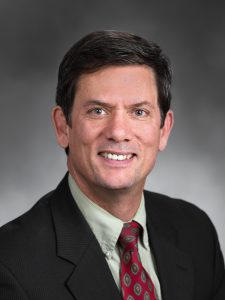This guest column was published in the Seattle Times, March 14, 2016.
By Sen. Mark Miloscia, R-Federal Way
In 2005, as chair of the state House of Representatives’ housing committee, I passed legislation to dramatically increase spending for the homeless while requiring Washington’s counties and state government to create a plan that addressed the root causes of homelessness. The measurable goal of ESSHB 2163 was to cut homelessness in half by 2015.
Ours was the first state to make this bold commitment. So what are the results after 10 years?
Homelessness has declined by about 35 percent statewide outside of King County. However, it breaks my heart that King County has seen homelessness spike by more than 15 percent — and now accounts for half of the homeless population in Washington. Local and state leaders have tragically lost control of an ever-deteriorating situation illustrated by the violent homeless battleground known as The Jungle. Other than ask for more money, government leaders are still clueless about what to do next.
Drugs, violent and petty crime, random encampments, panhandling, squatting, human waste and indecency are spreading across Seattle, wrecking neighborhoods and harming businesses. Residents are left to wonder if their leaders have any solutions. Seattle reminds me of my hometown of New York City during the dysfunctional 1980s and ’90s, when rampant homelessness, panhandling, crime and drugs were tolerated by city officials who lacked credible solutions.
Why do homeless-shelter beds remain empty while homelessness increases? Why are the associated ills of drugs, crime, public indecency and tent encampments increasing while King County experiences record economic growth with low unemployment?
The first problem is government’s incompetence and denial of reality. While Seattle Mayor Ed Murray correctly admitted that no one knows which homeless programs actually work, the county’s Ten-Year Plan to End Homelessness (rebranded “All Home” after its initial dismal failure) and the state’s homelessness plan have morphed into embarrassing public-relations documents disconnected from any sense of reality or accountability. It is tragic that last year we spent more than $200 million statewide on homeless programs and, in many counties (including King County), the problems are increasing and no one is held accountable.
Second, fear of being accused of “criminalizing” the homeless or restricting the “right” to be homeless, use drugs or panhandle produces permissive policies that enable homelessness and self-destructive behaviors.
What’s forgotten is that any plan for helping people must begin with holding individuals accountable for improvement. Unfilled rehabilitation and vocational slots and shelter beds show the problem is not a lack of money, but a lack of willingness to make people abandon self-destructive behaviors that make them homeless and unwilling to work.
Until we address the permissive culture issues and hold individuals accountable for their progress, we might as well burn money for homeless programs in the numerous campfires around Seattle.
Third, without affordable market-rate rental housing for low-wage workers, homelessness will only grow. Unfortunately, the booming job growth combined with a broken Growth Management Act and other costly local regulations will continue to displace low-income residents. The Growth Management Act prevents cities from achieving their stated goal of building enough affordable housing to match job growth, effectively mandating permanent homelessness, gentrification, rising rents and home prices rather than solving the problems.
Unless these policies change, ever-rising rents will push thousands more into homelessness, making all homeless and affordable-housing efforts futile and ineffective.
Fortunately, consensus is growing that past approaches to homelessness have failed — and that we need a new, bold approach focusing on individual, family and governmental responsibility and accountability.
We must close The Jungle now and all encampments soon after — and never tolerate these conditions again. In the state Senate, I unsuccessfully proposed additional policing to ensure that this next fence around The Jungle isn’t torn down. We must get all homeless into housing and treatment and not allow them to remain in squalor.
Let’s create real local and state plans that demand results, treating homeless people as individuals and holding them accountable for their improvement. Let’s put strengthening marriages, families and rehabilitation at the center of our plan to prevent homelessness from occurring by supporting the most financially stable unit in society: a two-parent household. Finally, let’s hold government leaders accountable with concrete plans that measure success not in terms of dollars spent and phony efforts started, but in reducing homelessness.
Continued government mismanagement, a permissive culture toward self-destructive behaviors and the homeless, and rising rents will only spread The Jungle like a cancer across King County to the rest of Washington.
Enough is enough. Feel-good proposals to pour even more money into the same failed programs are the definition of insanity. Until local and state leaders get their act together, we can’t trust them with more state tax dollars to fight a losing battle.
State Sen. Mark Miloscia, R-Federal Way, is the chair of the Senate Accountability and Reform Committee and vice-chair of the Senate Human Services, Mental Health and Housing Committee.









